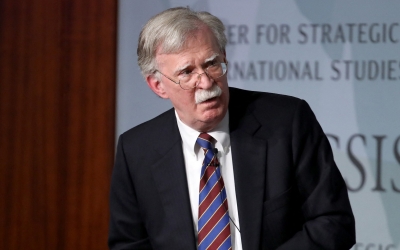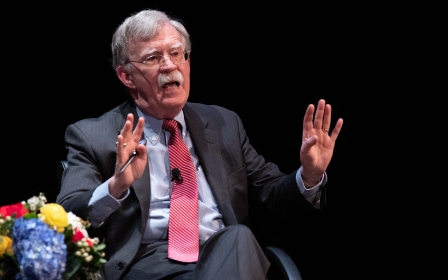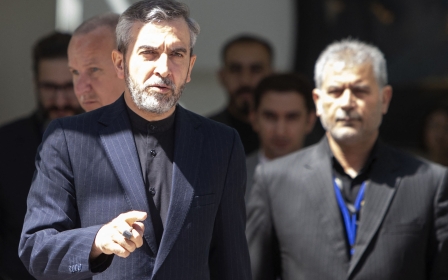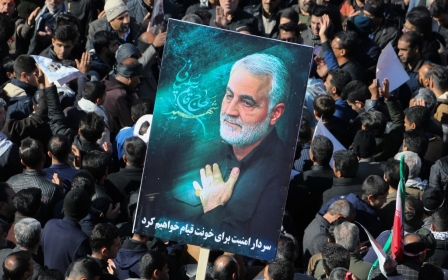Salman Rushdie, Satanic Verses author, stabbed at New York event
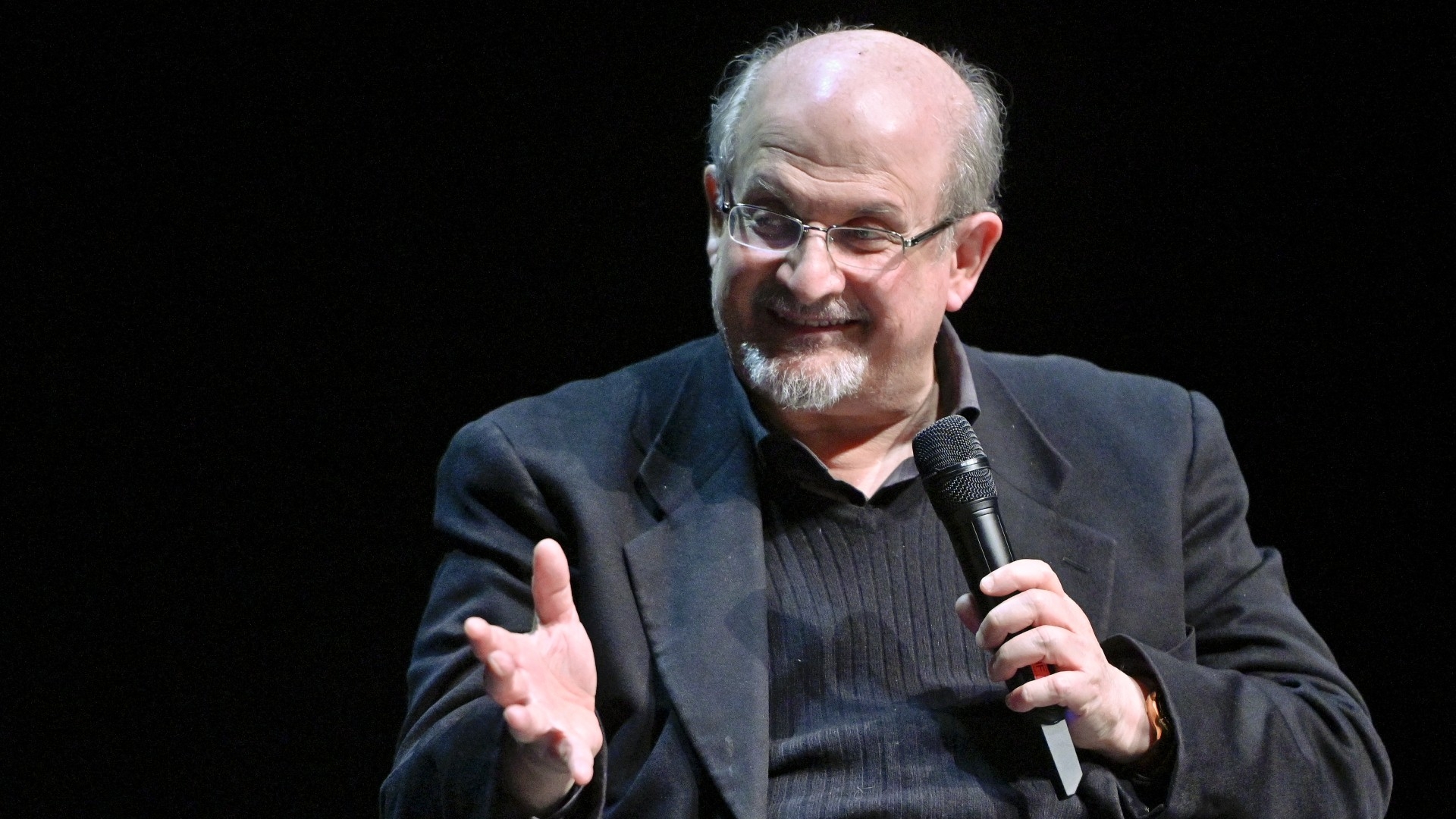
Author Salman Rushdie, whose work has earned him death threats, was stabbed on stage as he attended an event in New York on Friday according to witnesses' photos and videos from the scene.
Rushdie, who won the Booker prize in 1981, was at the Chautauqua Institution, a nonprofit education center and summer resort, located near Buffalo in western New York.
According to several videos posted on social media a man stormed the stage and attacked Rushdie and an interviewer. The author was taken or fell to the floor, and the assailant was restrained.
"Rushdie suffered an apparent stab wound to the neck," the New York State Police department said in a statement.
Rushdie was pictured being taken away in a stretcher, with blood covering his torso, hands and face, before he was loaded onto a medical evacuation helicopter.
New MEE newsletter: Jerusalem Dispatch
Sign up to get the latest insights and analysis on Israel-Palestine, alongside Turkey Unpacked and other MEE newsletters
New York Governor Kathy Hochul told a press conference about an hour later that Rushdie was alive.
The lone male assailant was later seen in police custody.
Rushdie's work, particularly his 1988 novel The Satantic Verses, attracted fierce protests, death threats, and even a fatwa for his assassination by the former religious leader of Iran.
Tehran has long since distanced itself from former leader Ayatollah Khomeini's decree, but anti-Rushdie sentiment lingers.
In 2012, a semi-official Iranian religious foundation raised the bounty for Rushdie from $2.8 million to $3.3 million.
Rushdie dismissed that threat at the time, saying there was "no evidence" of people being interested in the reward.
Rushdie, who was born to non-practising Muslims and is an atheist himself, has defended his work on several occasions.
PEN International, a writers' association that Rushdie is the former president of, condemned the attack and wished the author a "fast recovery" in a tweet.
Middle East Eye delivers independent and unrivalled coverage and analysis of the Middle East, North Africa and beyond. To learn more about republishing this content and the associated fees, please fill out this form. More about MEE can be found here.


